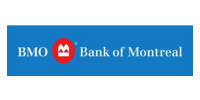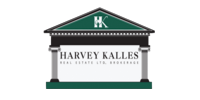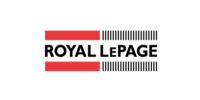[caption id="attachment_971" align="alignleft" width="300"]
(Photo credit:
Keith Allison/Creative Commons)[/caption]
Being able to own a home is a point of pride for many Canadians with many people seeing it as a passage to adulthood. But continually rising costs in the housing market may make owning a home more difficult, which can make some people take on desperate measures to become property owners, even if it's through illegal means.
With March being Fraud Prevention month, homebuyers need to be aware of schemes related to mortgages. There are many ways mortgage fraud can take place, but essentially what happens is that someone is lent money for a mortgage from a financial institution through unscrupulous means,
according to the CMHC.
To qualify for a mortgage, banks decide whether your household income can support additional debt, as well as how much, based on your credit profile, your income levels and other personal information.
Mortgage fraud can be done by the homebuyer, which is when you report inaccurate information on your application. For example, if you don't give your appropriate title, the correct years of service for your position or you provide an inflated income, that's considered mortgage fraud. If you say you're a full-time employee on salary, when in fact you're self-employed or on contract, that's also considered mortgage fraud. It's also considered fraud if you don't accurately state your debt obligations. Banks use an algorithm to determine the amount of debt load you can comfortably handle and all of these aspects affect the amount of money a bank is willing to lend you.
There are also cases where someone convinces another person to commit mortgage fraud. In a "straw buyer" scheme, a person with good credit is convinced by someone else to put their name on the mortgage application on their behalf. The buyer may be offered cash incentives to do so and they may not realize that they'll be the ones responsible for the mortgage payment.
If you are a victim of mortgage fraud, you may not have the means to properly pay down the mortgage, which affects your credit rating. You could also be left with a property you don't want.
Here are a few words of caution to avoid being a victim of mortgage fraud:
- Don't put your name on a mortgage unless you you can afford the mortgage payments and you plan to buy the property. If your personal information is attached to a property's mortgage, you could be on the hook for the entire debt.
- Always have a good understanding of any documentation before signing it. If you are unsure of what you're agreeing to, get a second legal opinion on the matter.
- Only use trustworthy professionals to help you shop for a home or mortgage, such as a licensed or accredited mortgage professional, along with an independent lawyer. Always research ahead of time before deciding who to consult on the matter.
- Get advice from a lawyer to ensure that your real estate transaction is handled properly. Buy title insurance or ensure that any deposits are held in trust by the appropriate parties.
- Don't trust anyone who approaches you with an offer to make "easy money." Unfortunately, if it sounds too good to be true, it likely is.
Some homebuyers may misrepresent their property by stating it's for personal use rather than as rental income since they fear they won't be able to qualify for the
HST housing rebate.
Property investors can be eligible for an HST rebate and when they take this route, they are committing mortgage fraud.
If you incorrectly file for an HST rebate, the
CRA will clawback the rebate amount plus interest. Rebate4U's priority is to provide our clients with the most professional and quality service in obtaining rebates for their new and renovated homes. We are proud to offer our clients the most personal and attentive service, and we make sure that all of our clients are 100% satisfied.










